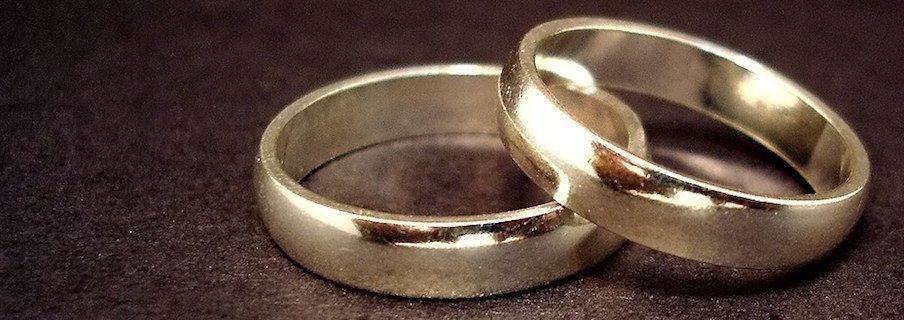You know the words of Genesis 2:18. There God, having completed his work of Creation, having declared the excellence of all that he has made, says “It is not good that the man should be alone; I will make him a helper fit for him.” It is useful to consider the context of the creation of Adam’s helper. God declared that it was not good for the man to be alone and that he had need of a helper. And yet he did not, at that moment, create such a helper and neither, as far as we know, did he say anything about this to Adam. Instead, he commanded Adam to name the animals. And he was obviously not just to name them, but to consider and evaluate each one. And as he did so, he must have realized that none of them were like him–none bore the image of God. An ache of loneliness must have developed within as he studied and pondered and realized that he was so much different from each of them. And there, in that context, God caused Adam to fall asleep and from his own body created a woman. And when Adam opened his eyes it is no wonder that he burst into praise. He looked upon this woman and saw at last his companion, his helper, and he cried out
This at last is bone of my bones
and flesh of my flesh;
she shall be called Woman,
because she was taken out of Man.
It was after coming to an understanding of his loneliness, his incompleteness, that Adam was able to offer God heartfelt praise for such great provision. Having experienced loneliness even in perfection, he knew the greatness of his gift.
The text emphasizes this idea of not good. It does not say that it is kind of unfortunate that Adam was alone, but that it was actually bad–and this in a world that God had declared good and very good. Here we see that God’s intention for Adam included marriage, companionship and, of course, the sexual relationship and procreation. Just as God does not exist in isolation, but instead in a tri-unity, so man is to live in relationship. And to address this need God created a helper for him or, said with more precision, a helper corresponding to him and complementing him. This helper is suitable for Adam, meaning that she is equal to him in dignity and worth and that she is adequate for him. Though women are different from men, they are equal in bearing the image of God.
But it is the word helper that really gets me thinking. It seems to me that there are two aspects to this word, two different dimensions to consider. In the first place it is a term that implies some kind of a subordinate role and not a word that suggests absolute equality of function. After all, the woman is to be a helper to the man but the man is never commanded to be a helper to the woman. And so it is a role of service in which a woman is to serve her husband as a helper. I remember my mother explaining how this worked itself out in her marriage to my father. She saw that it was her task to help my father become what God wanted him to become. His dreams were to become her dreams. And she worked toward that goal, finding joy in what brought him joy, helping make him successful in whatever he put his hand to.
Culturally we may balk at such a thought. And yet the Bible makes it clear that this is her job. And what’s more, the Bible makes it clear that this is a role that brings with it dignity. The word translated helper is used nineteen times in the Old Testament with sixteen of those uses referring to God. If God is a helper, surely no wife would say that such a role is beneath her! It is strange to consider that there is a sense in which God subordinates himself to us so he can offer us his help. In Recovering Biblical Manhood and Womanhood Ray Ortlund says, “It is entirely possible for God to subordinate Himself, in a certain sense, to human beings. He does so whenever He undertakes to help us. He does not ‘un-God’ Himself in helping us; but He does stoop to our needs, according to His gracious and sovereign will.” In the same way a parent may subordinate himself to his children in order to help them, coming down to their level so he can answer their questions from a perspective that will be meaningful to them. All this to say that there is nothing dehumanizing or undignified in being a helper.
And so a woman is to help her husband, knowing of her equality in dignity and worth and yet willfully subordinating herself to her husband in order to serve him.
Where the first dimension of the word helper indicates a helping role, the second is that it indicates need. And I think too many discussions of the word helper stop short of this reality. These discussions spill much ink in describing the woman’s role but not the reality that necessitates such a role. Said simply, a woman is to be a helper because a man needs help.
I married because I had needs that only a wife could fill. I was incomplete and inadequate on my own, just as Adam was. It was not good for me to be alone. In that one-flesh union, my wife I became one, no longer two individuals but a single partnership. Ortlund says of marriage, “It is the complete and permanent giving over of oneself into a new circle of shared existence with one’s partner.” This shared existence was a necessity as God did not ever intend for me to live life on my own. He has made me weak, he has made me inadequate, he has made me needy. And he has provided.
It has taken me over a decade of marriage to begin to clearly see my need of my wife. Or maybe I’ve only just begun to see how over the years I’ve naturally become dependent upon her. I’ve seen that God gave me a helper because I so badly needed one. But I see it now more clearly than ever. I need her. I occasionally like to pretend that I am an independent person and that I could get along quite well on my own. But really I know that this is not the case at all. I’m utterly dependent upon her now. She is my helper. If I am to be in any way successful in life, I know it will owe in large part to her efforts on my behalf.
And now I am embracing my dependence and celebrating my need. This is how God made me. He does not want me to pretend that I could do life just as well on my own, that I have accepted his gift of a wife thinking in the back of my mind that she’s good but that I could also do okay without her. There are many men who can exist perfectly well without being married (Jesus Christ being the foremost example); I’m not one of them. By making me aware of my need for help, he has given me a new appreciation for the helper he’s provided. And in so doing he’s given me a whole new love and respect for my wife as I see how she fills what is missing and completes what is lacking. To put it plainly, I need her and am dependent upon her.










